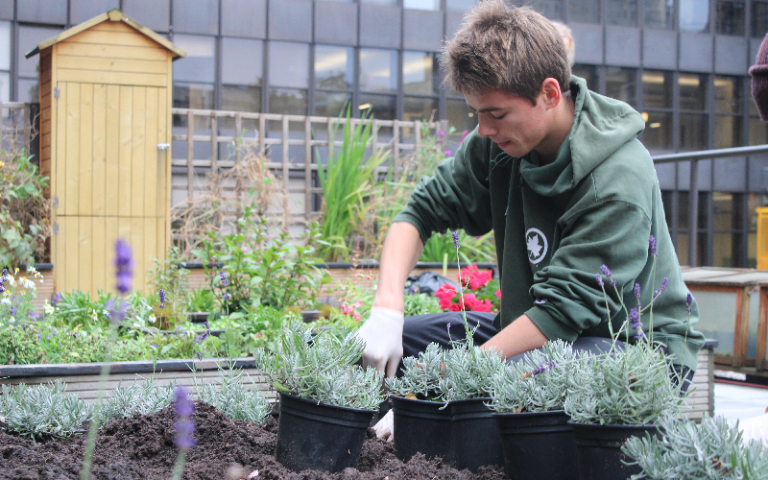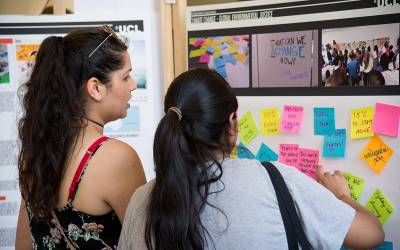Teaching and Learning on Campus
The UCL Living Lab is an opportunity for students and staff to solve UCL’s sustainability challenges through research, teaching, dissertations and projects.

19 November 2022
What is a Living Lab project?
Living Lab projects provide real-life learning opportunities for students, and opportunities for research impact for academics whilst helping us meet UCL's ambitious sustainability commitments.
A Living Lab project should:
- Be aligned to UCL's Sustainability Strategy;
- Aim to solve a real-life problem and make UCL more sustainable;
- Create an open source culture by sharing data and knowledge found with Sustainable UCL;
- Be framed around at least one of the Sustainable Development Goals;
- Be a partnership among key stakeholders, often crossing disciplinary and/or sectoral boundaries.
Dissertation Topics and Guidance
For students in need of inspiration on Living Lab projects, we have collated examples of dissertation topics to consider along with disseration guidance.
> Sustainability Dissertation Topics
Embedding Sustainability into the Curriculum
For teachers we have created specific guidance on how to embed sustainability into the curriculum
> Staff Resources for Sustainable Education
Sustainable Research
For researchers, we can provide support on how to trial research ideas of innovative sustainability solutions on campus.
Data
To support Living Lab projects we can provide the following data:
- Energy data for buildings and departments;
- Some water consumption data for buildings;
- Some travel data for departments;
- Data on behaviour change and engagement with the UCL community on sustainability topics;
- Information on sustainability projects across UCL: we can connect you with other researchers and staff solving UCL’s sustainability challenges;
- Information on sustainable buildings;
- Data on UCL’s supply chains, modern-day slavery principles and products bought and re-used across UCL;
- Information on policy.
We encourage you to connect with other environmental researchers across UCL through the UCL Environment Domain.
 Close
Close


